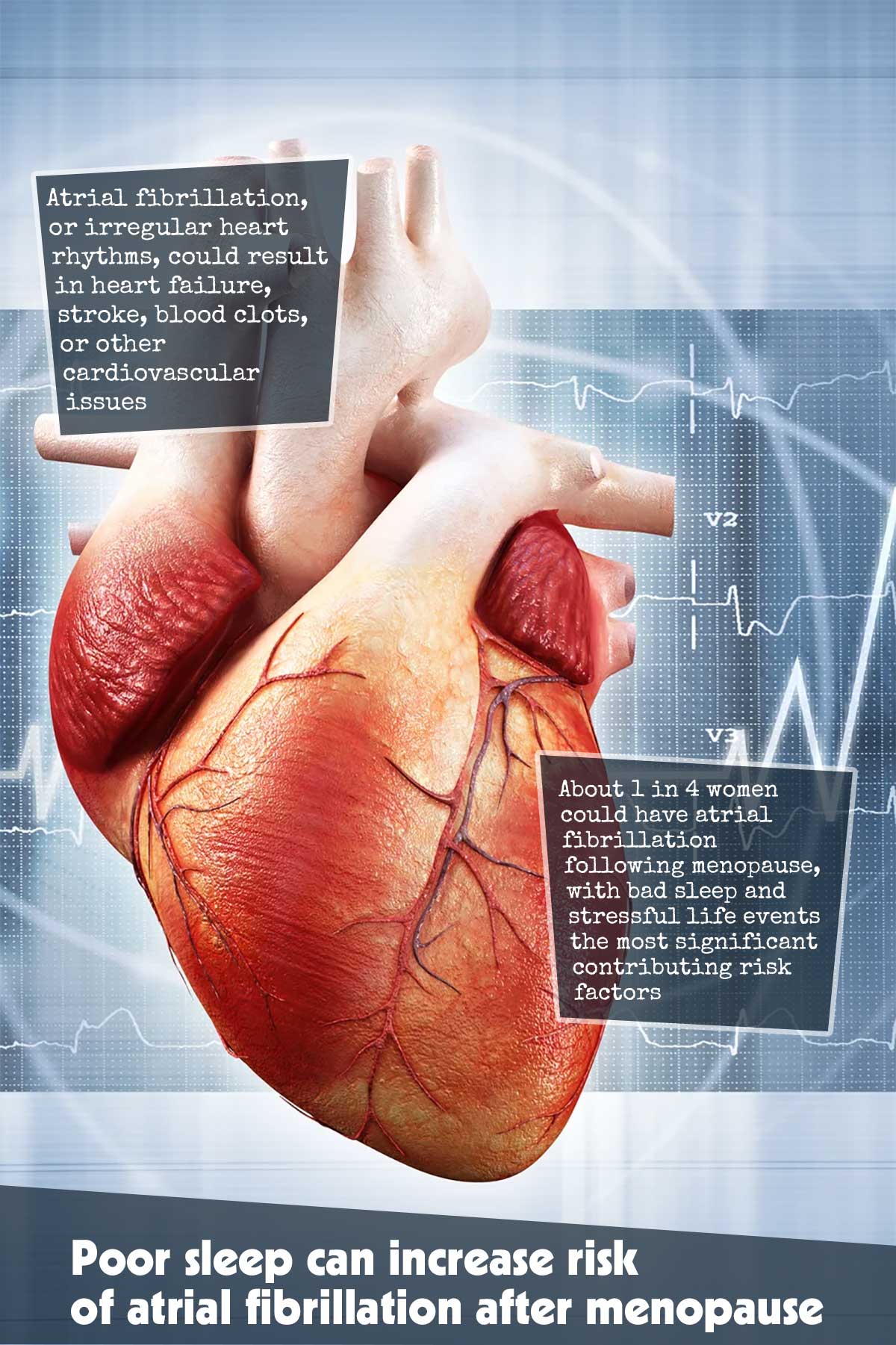According to a study, approximately 1 in 4 women could have atrial fibrillation following menopause, with bad sleep stressful and life events the most significant contributing risk factors.
Atrial fibrillation, or irregular heart rhythms, could result in heart failure, stroke, blood clots, or other cardiovascular issues. It affects mainly older individuals, and according to the AHA, by 2030 over 12 million individuals are predicted to have atrial fibrillation.
Data were reviewed from over 83,000 questionnaires completed by women between the ages of 50 and 79 from the Women’s Health Initiative, a big U.S. study. Individuals answered a series of questions in the following important categories: insomnia, social support, sense of optimism, and stressful life events.
Questions regarding stressful life events dealt with topics that included domestic, sexual, verbal, or physical abuse; financial pressure; divorce; illness; and loss of a loved one.
Questions regarding sleeping habits dealt with overall sleep quality, waking up numerous times throughout the night, and difficulty falling asleep.
Questions regarding social supports and outlook on life dealt with having daily chores help; a sense of optimism which included the belief that good things will happen; having friends to talk to about and during stressful or difficult situations.
The study found throughout about 10 years of follow-up that:
Approximately 23,954 women had atrial fibrillation.
A 2-cluster system (the strain cluster and the stress cluster).
There’s a 4% greater chance of having atrial fibrillation for each extra insomnia scale point. Likewise, there’s a 2% greater chance of having atrial fibrillation for each extra stressful life event scale point.
The brain and heart association has long been identified in many disorders. Atrial fibrillation is an electrical conduction system disorder and is susceptible to hormonal changes originating from bad sleep and stress. These common pathways probably support the connection between insomnia and stress with atrial fibrillation.
Stressful life events, bad sleep and feelings, which include feeling overwhelmed by circumstances, anxiety, or depression, are often interconnected. It’s hard to know if these factors accumulate little by little over time to increase atrial fibrillation risk as women get older.
Chronic stress hasn’t been consistently linked to atrial fibrillation, and a limitation of the study was that it relied on self-reported questionnaires used at the beginning of the study.
Although stressful life events can be traumatic and significant, they might however not be long-lasting. Additional studies are required to confirm these connections and assess if customized stress-relieving treatments could modify the risk of atrial fibrillation.
